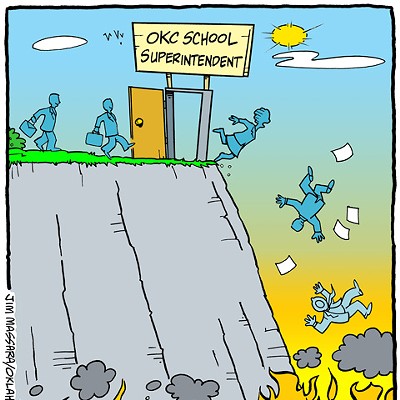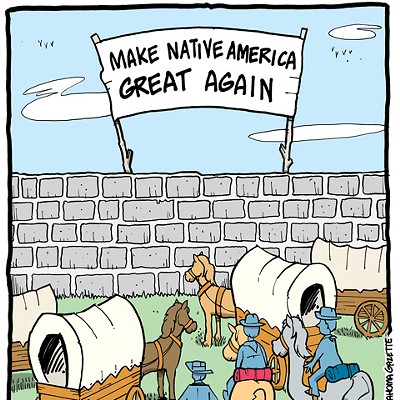The yearly rumor mill stating that Bob Stoops is leaving the University of Oklahoma " this time for the Notre Dame head coaching job " is exactly why news media should not publish rumors.
Stoops was forced, once again, to deny a report that had him packing his bags for South Bend, Ind. Obviously, the ESPN reporter never talked to Stoops, who was emphatic in his denial.
The media feeding frenzy that resulted is sort of like the reporter who asks the politician: "Are you still beating your wife?" The politician's denial gives the reporter a story. Someone says Stoops is going to Notre Dame, and every media outlet writes a story when Stoops has to deny the rumor.
"You should know everything reported isn't true," Stoops told a Tulsa World sports writer who text-messaged him for comment. Unfortunately " for Stoops and the media " it's not the first time the coach has had to question the accuracy of reporting. And we in the media wonder why more people don't trust us.
Back in the day, my first editor told me in no uncertain terms: "We don't print rumors!" His booming voice still resonates in my head.
Refusing to publish rumors " a rule imparted in Journalism 101 " is a lesson unlearned or unheeded by many in today's media. Spreading rumors seems to have become acceptable practice, and that's making it more difficult to distinguish between professional journalists and the wannabes yammering on message boards.
The guilty reporters and columnists apparently think that attributing to anonymous sources makes publishing rumors OK.
"But, readers want to know," they rationalize. "It's news."
Well, no, it's not news, and readers know it. Readers want facts, not rumors. Just ask them. They expect to see rumors on sports message boards. They don't expect to see it from professional writers and columnists.
One Irish Web site apparently reported that five anonymous sources had confirmed that Stoops and Notre Dame had reached an agreement. Five anonymous sources. Really? What difference does it make " one or five or 20 " if they're anonymous? What kind of credibility standard is that?
Anonymous sources have become the go-to guys for too many reporters. And coaches aren't without blame for the rumormongering.
Coaches like Les Miles, who lied to the media and Oklahoma State Cowboys fans before he took off for Louisiana State University, and Nick Saban, who lied to the media and Miami Dolphins fans before he left for Alabama's Crimson Tide, have fostered a climate of distrust and suspicion. They may well deserve that mistrust, but it's spilled over to the entire coaching profession. And they wonder why we in the media don't trust them.
We need more booming voices in the newsroom today: "We don't print rumors!"
STOOPS' STATEMENTS
"I fully intend to be at Oklahoma, hopefully, for a good while." "Nov. 30, Tulsa World
"I stand by the comments that I made earlier today. I will be at Oklahoma. Any reporting to the contrary is completely unfounded." "Nov. 30, SoonerSports.com
"For the third, and hopefully final time, let me again state that I will continue to be the coach at Oklahoma. I appreciate the history and tradition of Notre Dame. I also appreciate the history and tradition of Oklahoma, and I have been part of building that tradition here.
"I work for a wonderful president (David Boren) and athletic director (Joe Castiglione), who have created an incredible work environment at OU. There haven't been any plans for a meeting or negotiations with Notre Dame and there will not be. Any reporting to that fact is completely erroneous. I will not be the next coach at Notre Dame." "Dec. 5, Tulsa World
Willis, a former Muskogee Phoenix managing editor, once served as faculty adviser for the student-run Oklahoma Daily at the University of Oklahoma.












